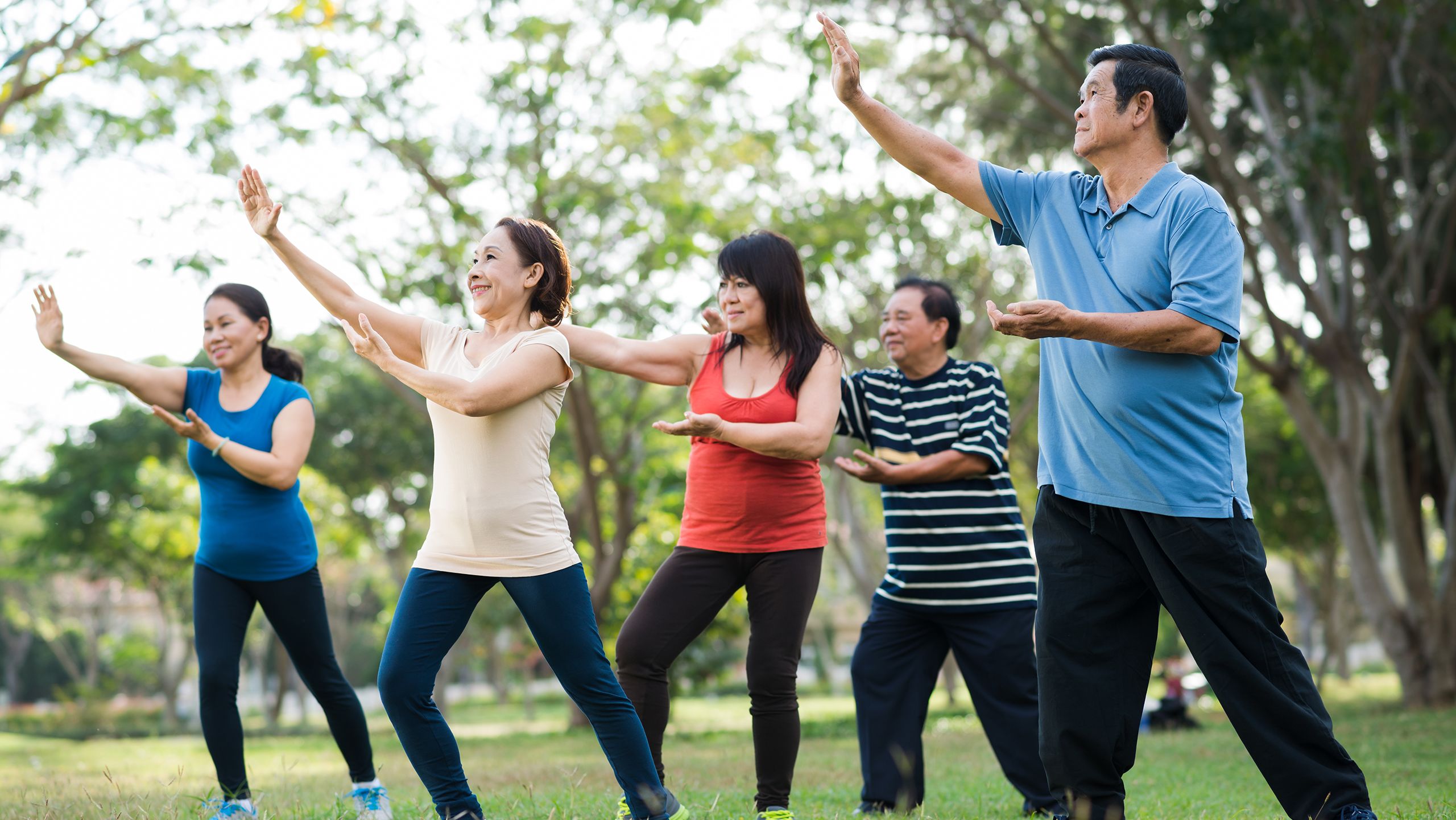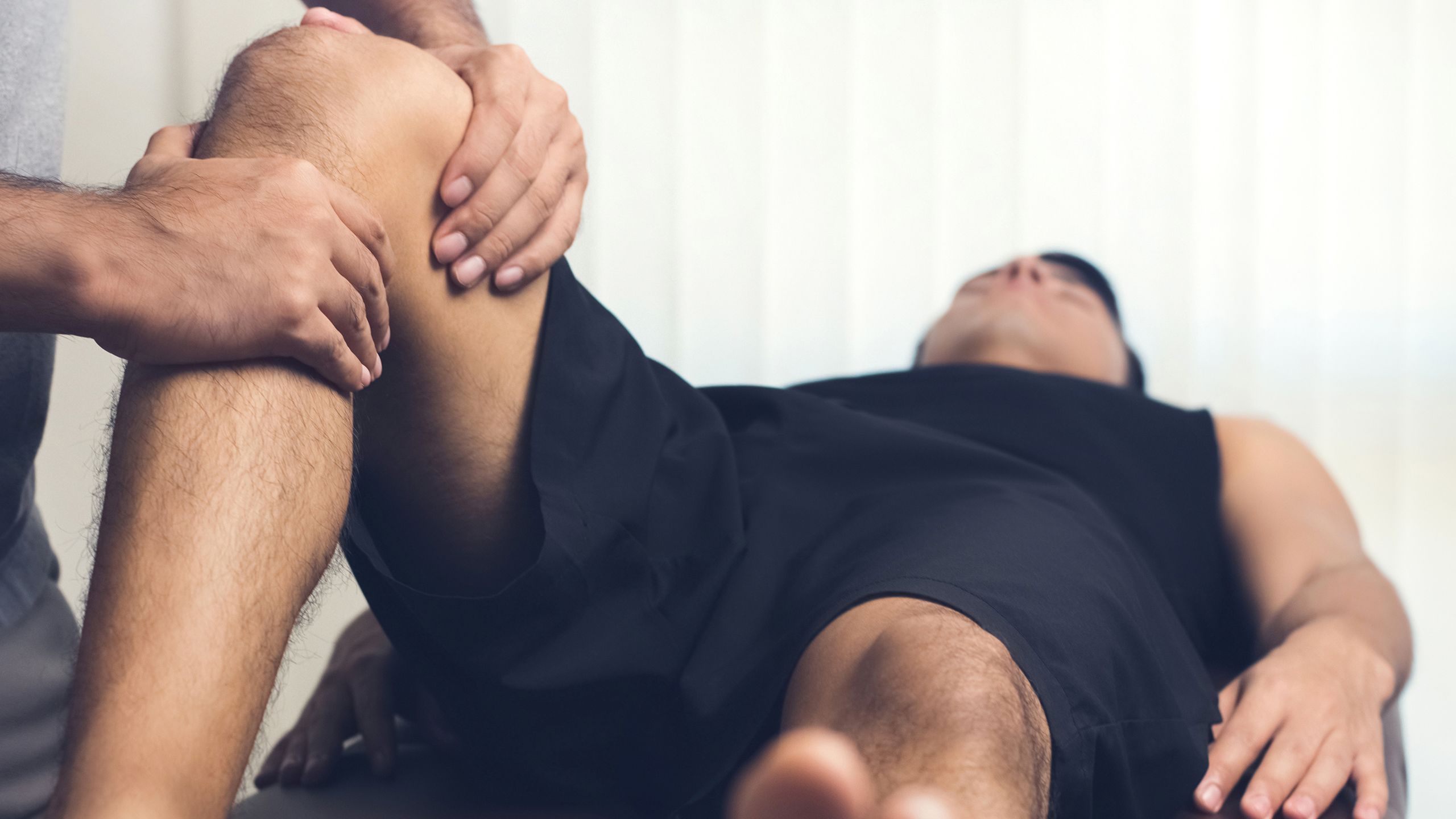Joint leader

When young Chinese medical student Aiqin Liu entered her weekly Tai Chi class back in 2004, she could have had little idea of the series of events that was about to unfold – and still less that it stood to benefit thousands of people struggling with pain.
As a form of exercise, Tai Chi is designed to promote physical and mental wellbeing and was a compulsory element on Aiqin’s medical course. However, her determination to push herself in this particular class resulted in serious injury when for one movement she overreached herself and dislocated her patella, or kneecap.
Not that this situation was entirely out of character. As a primary school child, she suffered an injury on gymnastic high bars resulting in the need for facial surgery, “I always try and push myself to the limit,” she said. “I was definitely the best in the class but I wanted to impress others at the time”.
Despite undergoing open knee surgery, her injury has prevented her from practising Tai Chi since that day. But worse was to follow.
In 2011 she was diagnosed with osteoarthritis, and underwent a second knee operation to clear up debris from the first operation and wear from the intervening years. “It was a controversial operation”, she says, “Some get good results, others don’t. I always believed surgery would cure the problem, I had an expert surgeon, but medicine gave me a fake confidence. The knee is trouble. And the patella is the trouble of trouble”
By this point she was a PhD student at Leeds’ Institute of Medical and Biological Engineering (iMBE), working on hip replacements. One particular day lives long in her memory.
“I was in serious pain and I realised I couldn’t work.” An orthopaedic surgeon examined her knee but confirmed that there was nothing clinicians could do. “They said I was too young for a total knee replacement. It really hit me that they were talking about a total knee replacement at my age.”
“It made me start to think. All my research is about surgical techniques but the surgery hadn’t cured me. I’d already had two operations so if they couldn’t do anything for me, I began to wonder whether I could do something for myself. I really needed to do something and not wait until I’m older and needing a total knee replacement.”
One conversation sticks in her mind. “My surgeon said to me, ‘You are a researcher – we can’t help you, but you have skills. It depends on you.’”
A turning point

Her inspiration came from an unexpected discipline - physiotherapy. “Following my first injury in China, no appropriate physio was offered. But after my second surgery, here in the UK, I was given a leaflet with exercises to carry out and found that physiotherapy really helped.
“But I felt challenges, I didn’t know how far to push things and there was no-one to give advice. I knew physio could help me but there wasn’t enough support as a patient to know how far to go. I began to wonder if maybe others felt the same?”
She began to speak to patients, clinicians and physiotherapists and a picture emerged that others did indeed feel the same. “I realised that for rehab there are many devices, such as monitors for example, that you can wear on the knee for the time you’re in the session. But then you leave the session and you’re on your own. There was still a gap – I needed something I could use daily.”
Having concluded that the most pressing requirement was for monitoring and support (both physical and psychological), Aiqin began collaborating with her clinical partners (including her surgeon, Sanjeev Anand), and has now developed a knee device that monitors movement, collecting data in much the same way as a fitness tracker collects data about the body.
The lightweight device – similar to a common knee support – links to an app that enables patients and clinicians to check how the knee is performing while giving reassurance that a patient isn’t overdoing things. Data parameters can be tailored to the individual, and it even has an in-built alarm system that can both detect abnormalities and act as a reminder to encourage exercise at the appropriate time.
Support for a crazy idea

Always one to push herself, Aiqin isn’t content to stop there. Having developed the monitoring device, she is now looking at how to better support others with knee osteoarthritis. Driven by a desire to improve recovery times and outcomes for patients undergoing a total knee replacement, she is developing technology that will help people struggling with knee movement.
As we age, our muscles weaken, making it both easier to damage the knee and harder to exercise it. So Aiqin wanted to develop a second device that could improve mobility when a patient may have difficulty in moving it for themselves.
Inspiration in this area was even more unexpected than the first. “I had this crazy idea of some kind of robotic knee, but I know nothing about robotics.”
Then she met Professor Shane Xie, a robotics expert. His enthusiasm for her ‘crazy idea’ surprised her. “I was really keen to do something but didn’t have the confidence. I’m not from a robotic background. He liked the idea and wanted to work with me on it. He gave me massive support and the opportunity to get into a field where I have no experience. He opened the door for me and now I’m supervising a postdoc in robotics!”
She secured a Michael Beverley Fellowship and one of the UKRI Healthy Ageing Catalyst Awards 2022 that offer funding to support early career researchers to collaborate with others, develop partnerships and build commercial awareness. “It really helped me develop my skills. Many people doubted me at the time and there have been many challenges to get it off the ground; you need to have proof there’s a market”.
Having engaged with the University’s Research and Innovation Service, commercialisation is at a very early stage. The next challenge will be to bring the monitoring and assistive devices together and discussions with medical technology companies are now taking place.
Aiqin may still regret overreaching herself in that Tai Chi class, but thousands of people could yet benefit from her determination to change the prospects for others.
About Aiqin
Aiqin Liu is a Lecturer in Sports and Exercise Sciences at the University of Leeds.
Her research interest includes biomechanics of rehabilitation for musculoskeletal conditions and rehabilitation assistive technology.
She is a chartered engineer and a member of the Institution of Mechanical Engineers.